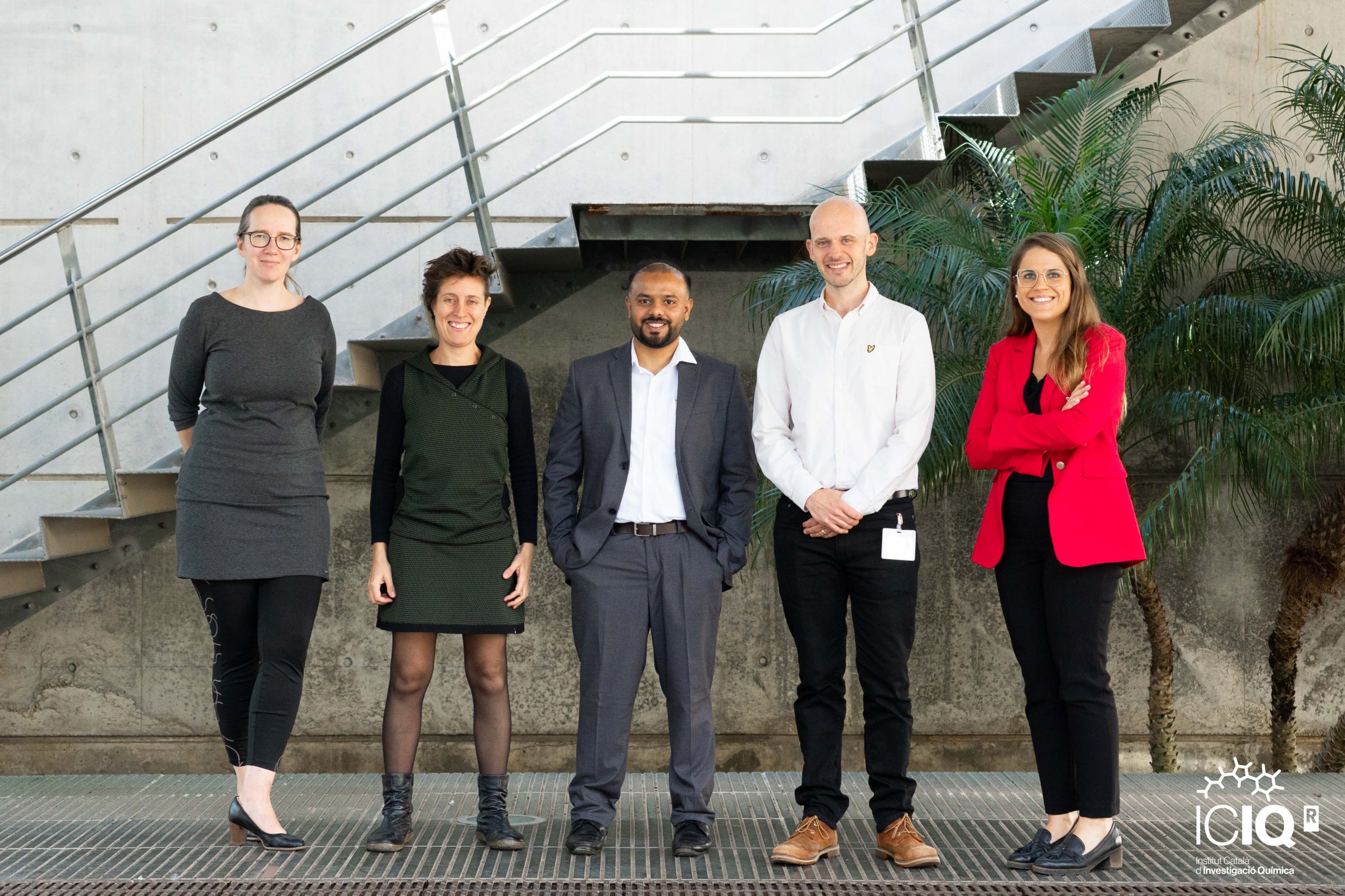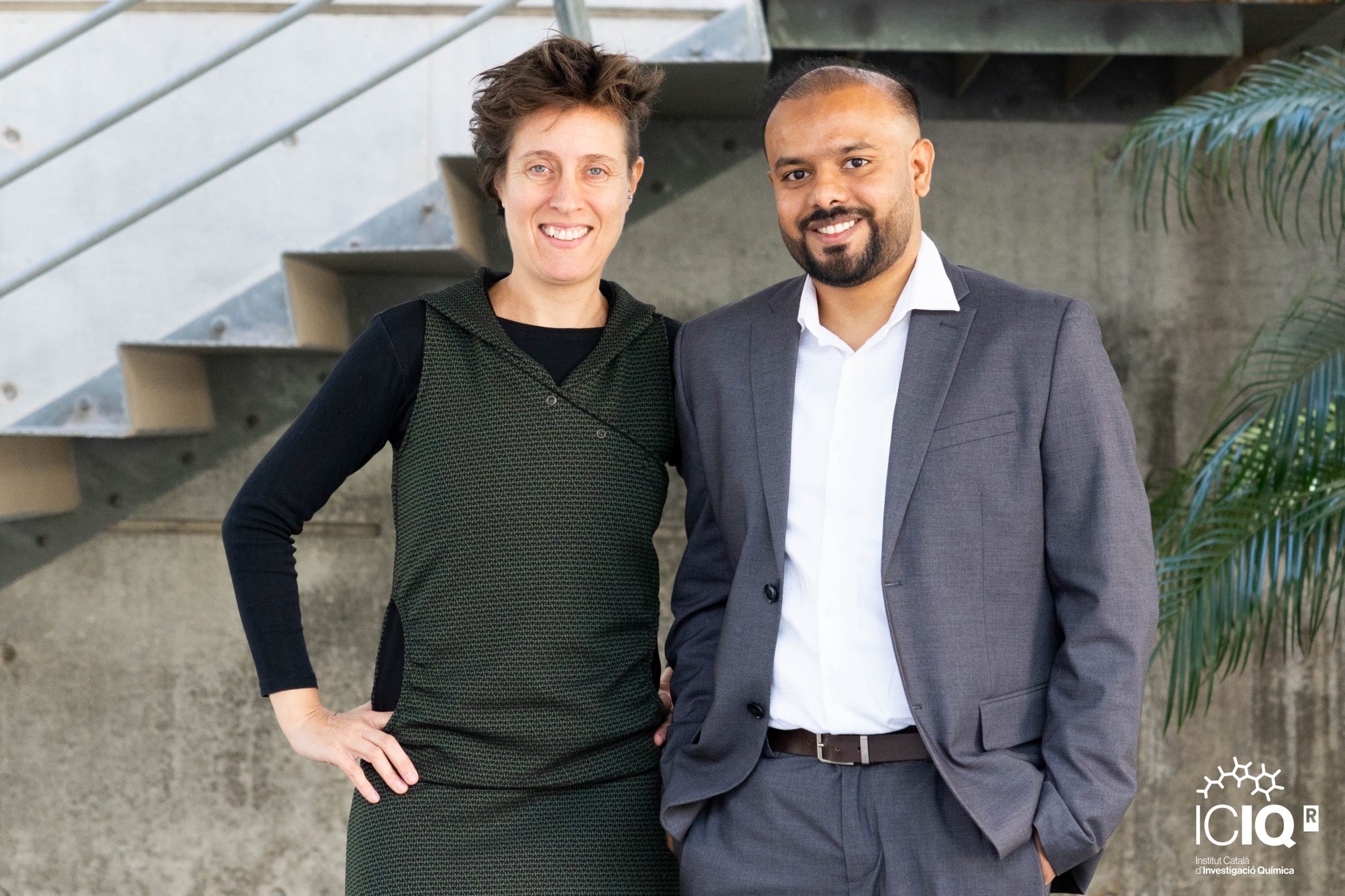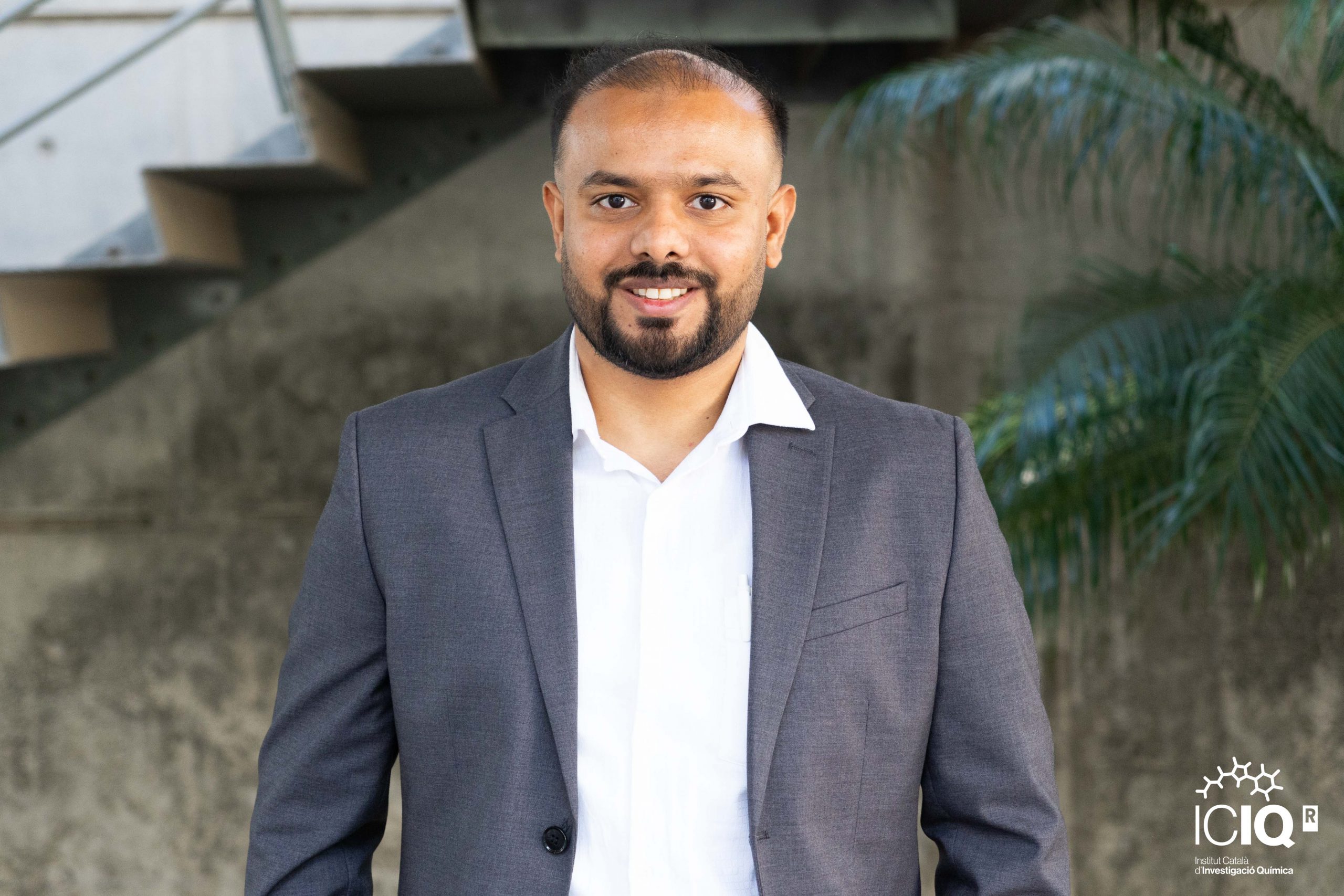അഭിനന്ദനങ്ങൾ Dr. Shareef!
Saeed Shareef, a PhD student who is under Dr. Elisabet Romero supervision, has successfully defended his PhD thesis entitled “Engineering Excitonic and Charge-Transfer States in Bio-Inspired Chromophore-Protein Assemblies” publicly on Thursday, October 10th.
The members of the evaluation committee were Prof. Dr. Joanna Grzyb (University of Wroclaw, Poland), Prof. Dr. John Leslie Ross Anderson (University of Bristol, UK) and Dr. Carla Casadevall (Universitat Rovira i Virgili)

Saeed Shareef, originally from India, hails from Calicut, a city of historical significance as the place where the Portuguese explorer Vasco da Gama first arrived in India by sea in 1497. Over time, his interests have evolved. While he was once passionate about football and a devoted follower of FC Barcelona—an interest that influenced his decision to pursue higher studies in Spain—he has recently developed a deep interest in understanding societal realities, multiculturalism, and the ongoing challenges faced by individuals and communities across the globe.
What do you want to achieve as a scientist?
I want to work on real-life solutions that make a difference, like developing efficient and sustainable energy systems, which is what I’m focused on right now. But honestly, I believe that no scientific achievement is more important than global peace. So, while I hope my work contributes positively and doesn’t end up benefiting only the elite while hurting the lower class in the society.
What is your thesis about?
My thesis focused on engineering artificial pigment-protein complexes and exploring their opto-electric properties. We drew inspiration from the design principles of natural light-harvesting complexes, which are incredibly efficient at capturing and utilizing photons. By designing these bio-inspired systems, we aimed to understand their mechanisms and, ultimately, use that knowledge to develop innovative technologies for harnessing solar energy more effectively.
What applications can your thesis have in the future?
My thesis shows a systematic approach for the development of artificial pigment-protein complexes with exciting properties for light harvesting, which are key for light-harvesting applications. These complexes could potentially be used with catalytic systems or enzymes to harness electronic energy in the future. It’s all about finding new ways to harness and utilize solar energy efficiently!
From the lessons learnt (or skills developed) at ICIQ, which one do you value the most?
The most valuable skill I learned at ICIQ is how to troubleshoot complex experiments. Thinking critically and creatively when things go wrong is essential. I also appreciated the emphasis on teamwork and collaboration, which has helped me develop a solution-oriented mindset
What ICIQ moment you´ll never forget?
One ICIQ moment I’ll never forget is how memorable life there has been, both inside the lab and outside with colleagues. I got to travel to so many places and experience different cultures and cuisines, which was awesome! The social events like the calçots and the Christmas paella were unforgettable. Honestly, my time at ICIQ was amazing—I loved the people, the research, and all the opportunities to explore. Those moments really made my experience special!
What will you miss the most from ICIQ?
What I’ll miss most about ICIQ is definitely the sense of community and the friendships I made. The supportive atmosphere really encouraged collaboration and the exchange of ideas. I’ll also miss the engaging socio-political discussions we had in the group; they were always knowledgeable and full of enthusiasm. I also appreciated the independent working environment, which I fear might be hard to find elsewhere. A big thank you to Elisabet for fostering this support!
What advice do you have for someone who’s starting their PhD now?
Before joining a PhD group, take the time to get to know them and figure out what skills and knowledge would be useful for the project. It’s worth learning some of that in advance. And if, after a few months, you realize the project isn’t aligned with your interests, don’t be afraid to step back and switch paths. Follow your passion—doing what you love is the only way to find true joy in your work.
Chemistry/Science is fun because…
Chemistry is a lot like cooking. You mix different molecules together to create something new, just like combining ingredients to make different kinds of biryanis. And speaking of which, I actually enjoy cooking too!.
The only difference is that instead of tasting my “recipes” with my tongue, I use instruments in the lab to see how they turn out.
What is your favourite molecule?
Water, H₂O, is my favorite molecule. It’s simple but amazing! Water is essential for life and has incredible properties. Water is essential for life; in fact, life itself began in water! Plus, water splitting is being looked at as a potential sustainable energy source for the future.


Related news

Let's create a brighter future
Join our team to work with renowned researchers, tackle groundbreaking
projects and contribute to meaningful scientific advancements






 20-12-2024
20-12-2024 


















